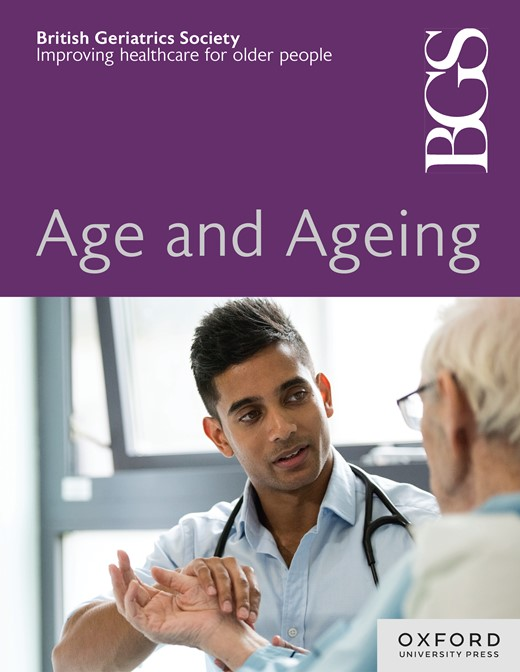社会心理干预减轻残疾老年人家庭照顾者负担的效果:系统回顾和网络荟萃分析
IF 7.1
2区 医学
Q1 GERIATRICS & GERONTOLOGY
引用次数: 0
摘要
照顾者负担是照顾残疾老年人的一个重大挑战。本综述旨在评估减轻家庭照顾者负担的最有效的社会心理干预措施,重点关注整体有效性,认知障碍的照顾者和家庭干预措施。方法系统检索PubMed、Web of Science、Embase、Scopus、Cochrane Library、PsycINFO和CINAHL 7大数据库,检索时间截止到2024年10月2日。使用标准化平均差异(SMDs)和95%置信区间(ci)评估连续结果。干预排名依赖于累积排名曲线(SUCRA)下的表面值。结果在31项涉及4687名参与者的试验中,比较了心理教育(n = 14)、认知行为疗法(CBT) (n = 9)、回忆疗法(n = 2)、家庭照顾者支持计划(n = 2)、基于正念的干预(mbi) (n = 2)、渐进式肌肉放松(n = 1)和音乐疗法(n = 1), mbi (SMD = - 6.67, 95% CI: - 12.94, - 0.41)显著减轻了照顾者负担,排名最高(SUCRA, 79.2%;平均排名,2.4)。在有认知障碍的护理对象的研究中,mbi显著减轻了负担(SMD = - 17.06, 95% CI: - 25.02, - 9.10),并保持了最高的排名(SUCRA, 98.7%;平均排名,1.2)。在护理人员家中进行的研究中,CBT仍然非常有效(SMD = - 5.57, 95% CI: - 8.59, - 2.90),并且排名最高(SUCRA, 95.7%;平均排名,1.2)。结论:该网络荟萃分析强调了心理社会干预在减轻照顾者负担方面的有效性。mbi是最有效的,特别是对于有认知障碍的个体的护理人员,而CBT在家庭环境中非常有效。这些发现强调了因地制宜的策略的重要性。本文章由计算机程序翻译,如有差异,请以英文原文为准。
The efficacy of psychosocial interventions in relieving family caregiver burden in older adults with disabilities: a systematic review and network meta-analysis
Background Caregiver burden is a significant challenge for those caring for older adults with disabilities. This review aims to assess the most effective psychosocial interventions for reducing family caregiver burden, focusing on overall effectiveness, care recipients with cognitive impairment and home-based interventions. Methods Seven major databases (PubMed, Web of Science, Embase, Scopus, Cochrane Library, PsycINFO and CINAHL) were systematically searched until 2 October 2024. Continuous outcomes were assessed using standardised mean differences (SMDs) and 95% confidence intervals (CIs). Intervention rankings relied on surface under the cumulative ranking curve (SUCRA) values. Results In 31 trials with 4687 participants, comparing psychoeducation (n = 14), cognitive behavioural therapy (CBT) (n = 9), reminiscence therapy (n = 2), family caregiver support programmes (n = 2), mindfulness-based interventions (MBIs) (n = 2), progressive muscle relaxation (n = 1) and music therapy (n = 1), MBIs (SMD = −6.67, 95% CI: −12.94, −0.41) significantly reduced caregiver burden and ranked highest (SUCRA, 79.2%; mean rank, 2.4). In studies with care recipients with cognitive impairment, MBIs substantially reduced burden (SMD = −17.06, 95% CI: −25.02, −9.10) and held the top ranking (SUCRA, 98.7%; mean rank, 1.2). In studies conducted in caregivers' homes, CBT remained highly effective (SMD = −5.57, 95% CI: −8.59, −2.90) and ranked highest (SUCRA, 95.7%; mean rank, 1.2). Conclusions This network meta-analysis highlights the effectiveness of psychosocial interventions in reducing caregiver burden. MBIs were most effective, particularly for caregivers of individuals with cognitive impairment, while CBT was highly effective in home-based settings. These findings underscore the importance of context-specific strategies.
求助全文
通过发布文献求助,成功后即可免费获取论文全文。
去求助
来源期刊

Age and ageing
医学-老年医学
CiteScore
9.20
自引率
6.00%
发文量
796
审稿时长
4-8 weeks
期刊介绍:
Age and Ageing is an international journal publishing refereed original articles and commissioned reviews on geriatric medicine and gerontology. Its range includes research on ageing and clinical, epidemiological, and psychological aspects of later life.
 求助内容:
求助内容: 应助结果提醒方式:
应助结果提醒方式:


